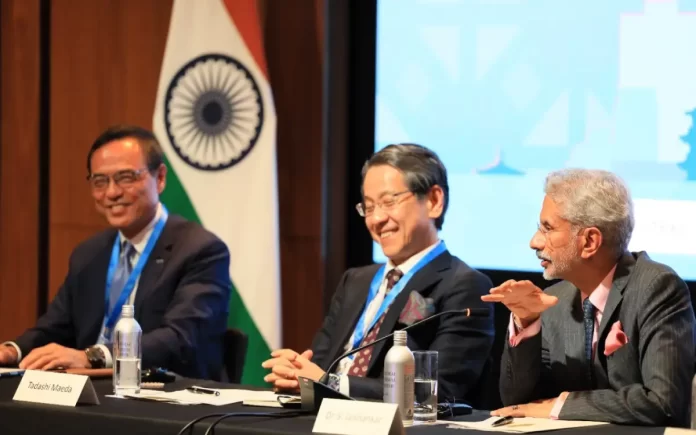Tokyo: External Affairs Minister S. Jaishankar didn’t mince words as he addressed China’s alleged breaches of longstanding agreements during the Raisina Roundtable in Tokyo. He pointed out China’s failure to uphold agreements with India, particularly highlighting the border conflicts of 2020, which marked the first such incidents in over four decades.
Speaking at the roundtable, Jaishankar delved into the shifting dynamics of the world order, acknowledging a significant power shift in the Indo-Pacific region.
“There is a reality of a very big power shift in the Indo-Pacific. When there are very big shifts in capabilities and influence and presumably ambitions, then there are all the accompanying ambitions and strategic consequences. Now, it’s not an issue whether you like it or you don’t like it. There’s a reality out there, you have to deal with that reality,” Jaishankar emphasized.
Read More: US Welcomes Productive and Peaceful Talks Between India and Pakistan
External Affairs Minister underscored the need to adapt to these changes and maintain stability amidst growing capabilities, influence, and strategic consequences. However, he expressed disappointment in the contrasting behavior, particularly pointing fingers at China.
Reflecting on the border tensions that escalated in 2020, Jaishankar noted, “Unfortunately, that’s not what we have seen in the last decade of our own experience in the case of China, for example, is between 1975 to 2020, which is really 45 years, there was no bloodshed on the border, and in 2020, changed.”
Jaishankar stressed the importance of peace in the border areas for normalizing ties between India and China.
“We see it in conflict in Europe, in disregard for international law in Asia, and in the ongoing developments in the Middle East and often in the weaponization of the normal,” he said.
“Longstanding agreements are not being necessarily observed, raising question marks about the stability of the environment in which we all operate,” he added, referring to the 1993 Border Peace and Tranquillity Agreement (BPTA) and the 1996 agreement on Confidence Building Measures in the Military Field Along the Line of Actual Control in the India-China Border Areas.
Answering a question after his speech, he said, “That is why for India, in a changing world, our own equilibrium, our own balances with other countries are changing as well. They don’t have to be acrimonious, but the balance is changing.” The External Affairs Minister had on March 2 in Delhi raised a similar point while speaking at an interactive session of a think tank. China must adhere to border management pacts and there has to be peace and tranquility along the Line of Actual Control (LAC) for improvement in Sino-India ties, Jaishankar asserted amid the lingering military face-off in eastern Ladakh.



